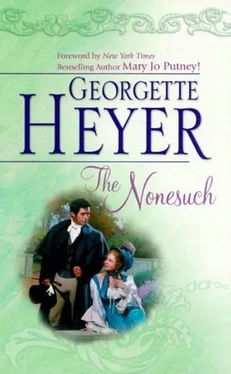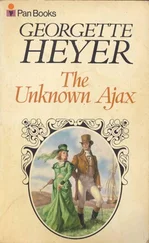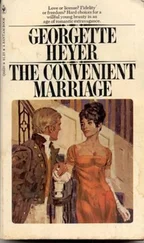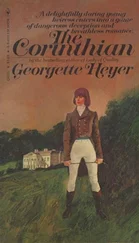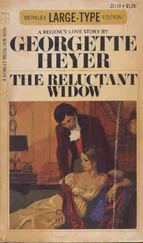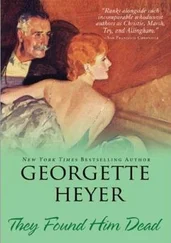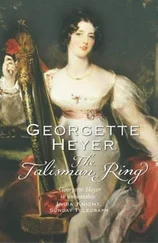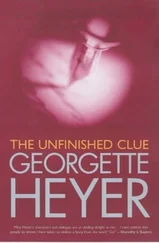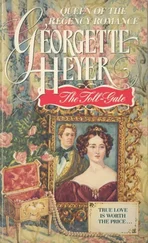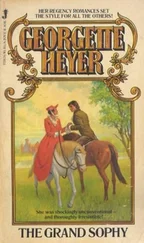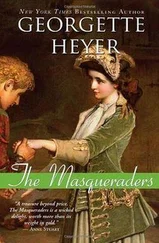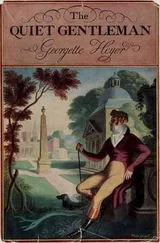There was a twinkle in the Nonesuch’s eye as he scanned the countenances of his assembled relations, but his voice was perfectly grave, even a trifle apologetic. “I am afraid it is quite true, ma’am,” he said, addressing himself to his Aunt Sophia. “I am the heir.”
Since the question, so indignantly posed by Lady Lindeth, had been rhetorical, this very frank and manly confession surprised no one. They all knew that old Cousin Joseph Calver had left his fortune to Waldo; and when Lady Lindeth had summoned him to account for himself she had acted on the impulse of the moment, and with no expectation of hearing the news denied. Nor had she had any very real expectation of Waldo’s renouncing the bequest in favour of her only child. She naturally felt that no worthier heir to eccentric Cousin Joseph’s estate existed than Julian; and she had done her best to introduce the noble orphan to him, even enduring the rigours of a week spent at Harrogate, when Julian had been an engaging child in nankeens and a frilled shirt, and she had tried (quite unavailingly) to gain entrance to Broom Hall. Three times had she driven out from Harrogate, the bored but docile little boy beside her, only to be told, twice, by Cousin Joseph’s butler, that the Master was not feeling clever enough to receive visitors; and, once, that the Master would thank her not to come pestering him, because he didn’t want to see her, nor her son, nor anyone else. Enquiry had elicited the information that the only visitor ever admitted into the house was the doctor. Local opinion was divided, charitable persons maintaining that a disappointment suffered in his youth was responsible for this churlishness; others asserting that he was a muckworm who grudged every groat he was obliged to spend. Having had the opportunity to perceive the neglected condition of the grounds of Broom Hall, Lady Lindeth had ranged herself with the majority. A suspicion that Cousin Joseph might not be as plump in the pocket as was supposed had occurred only to be dismissed: Broom Hall, though greatly inferior in style and size to young Lord Lindeth’s seat in the Midlands, was a very respectable house, with probably as many as thirty bedrooms. It did not stand in a park, but its gardens appeared to be extensive; and she was credibly informed that most of the surrounding land belonged to the estate. She had left Harrogate much inclined to think that Cousin Joseph’s fortune was considerably larger than had previously been supposed. She did not grudge it to him, but she would have thought herself a very unnatural parent had she not made a push to secure it for her son. So she had swallowed her resentment at the treatment she had received, and had continued, throughout the succeeding years, to send Joseph small Christmas gifts, and periodical letters, affectionately enquiring after the state of his health, and regaling him with accounts of Julian’s virtues, beauty, and scholastic progress. And after all her pains he had left his entire estate to Waldo, who was neither the most senior of his relations nor the one who bore his name!
The most senior of the three cousins gathered together in Lady Lindeth’s drawing-room was George Wingham, the son of her ladyship’s eldest sister. He was a very worthy man, however prosy; she was not particularly fond of him, but she thought she could have borne it better had Cousin Joseph made him his heir, for she was obliged to acknowledge that his seniority gave him a certain amount of right to the bequest. Not, of course, so good a right as Laurence Calver. Lady Lindeth held Laurence, the youngest of her nephews, in contempt and dislike, but she hoped she was a just woman, and she felt she could have supported with equanimity his succession to a fortune which he would have lost no time in dissipating.
But that Cousin Joseph, ignoring the claims of George, and Laurence, and her beloved Julian, should have named Waldo Hawkridge as his heir was so intolerable that had she been of a nervous disposition she thought she must have succumbed to Spasms when she had first heard the incredible news. As it was, she had been unable to speak for a full minute; and when she did she had merely uttered Waldo’s name, in a voice so vibrant with loathing that Julian, the bearer of the tidings, had been startled. “But, Mama—!” he had expostulated. “You like Waldo!”
That was perfectly true, but quite beside the point, as she crossly told her son. She was, in fact, much attached to Waldo, but neither her fondness for him nor her gratitude for his unfailing kindness to Julian prevented her from feeling positively unwell whenever she thought of his enormous wealth. To learn that Cousin Joseph’s estate was to be added to an already indecently large fortune did make her feel for a few minutes that so far from liking him she detested him.
She said now, in a peevish tone: “I can’t conceive what should have induced that disagreeable old man to choose you for his heir!”
“There is no understanding it at all,” Sir Waldo replied sympathetically.
“I don’t believe you ever so much as saw him, either!”
“No, I never did.”
“Well, I must own,” said George, “that it was an odd sort of a thing to do. One would have thought—However, none of us had the least claim on the old fellow, and I’m sure he had a perfect right to leave his money where he chose!”
At this, Laurence Calver, who had been lounging on the sofa, and moodily playing with an ornate quizzing-glass, let the glass fall on the end of its ribbon, and jerked himself up, saying angrily: “ You had no claim to it—or Waldo—or Lindeth! But I’m a Calver! I—I think it damnable! ”
“Very possibly!” snapped his aunt. “But you will be good enough not to use such language in my presence, if you please!”
He coloured, and mumbled an apology, but the reproof did nothing to improve his temper, and he embarked on a long and incoherent diatribe, which ranged stammeringly over a wide ground, embracing all the real and fancied causes of his sense of ill-usage, the malevolence of Joseph Calver, and the suspected duplicity of Waldo Hawkridge.
Until George Wingham intervened, he was heard in unresponsive silence. His oblique animadversions on Sir Waldo’s character did indeed bring a flash into Lord Lindeth’s eyes, but he folded his lips tightly on a retort. Laurence had always been jealous of Waldo: everyone knew that; and very ludicrous it was to watch his attempts to outshine his cousin. He was several years younger than Waldo, and he possessed none of the attributes which Nature had so generously bestowed on the Nonesuch. Failing to excel in any of the sports which had won for Waldo his title, he had lately turned towards the dandy-set, abandoning the sporting attire of the Corinthian for all the extravagances of fashion popular amongst the young dandies. Julian, three years his junior, thought that he looked ridiculous in any guise; and instinctively turned his eyes towards Waldo. They warmed as they looked, for to Julian Sir Waldo was at once a magnificent personage in whose company it was an honour to be seen, the big cousin who had taught him to ride, drive, shoot, fish, and box; a fount of wisdom; and the surest refuge in times of stress. He had even taught him something of his own way with the starched folds; of a neckcloth: not the intricacies of the Mathematical or the Oriental Tie, but an elegant fashion of his own, as unobtrusive as it was exquisite. Laurence would do well to imitate the quiet neatness of Waldo’s dress, Julian thought, not realizing that the plain, close-fitting coats which so admirably became Waldo could only be worn to advantage by men of splendid physique. Less fortunate aspirants to high fashion were obliged to adopt a more florid style, with padding to disguise sloping shoulders, and huge, laid-back lapels to widen a narrow chest.
Читать дальше
